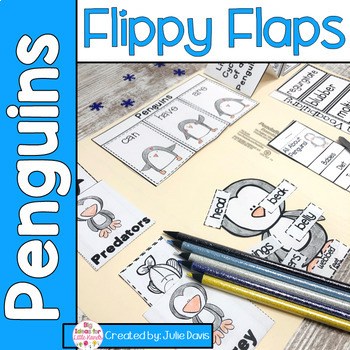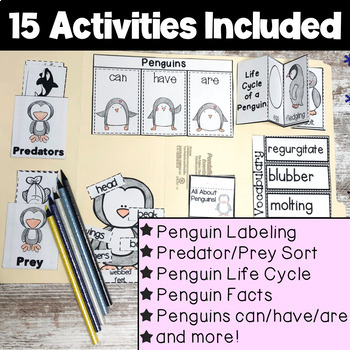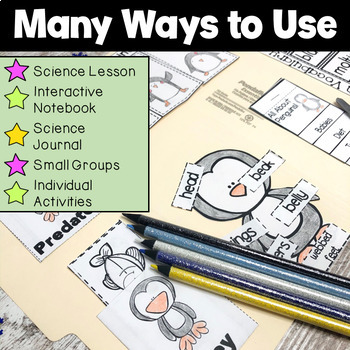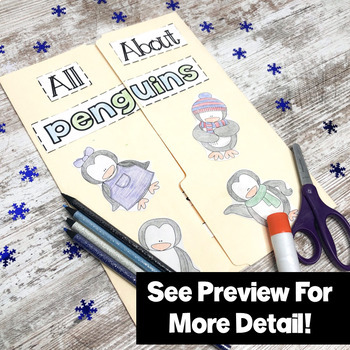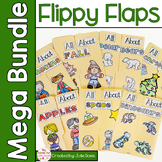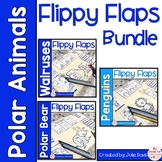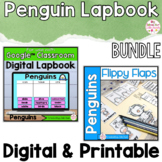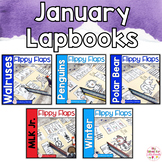All About Penguin Science Life Cycle Craft - Kindergarten 1st Grade Activity
- PDF
What educators are saying
Also included in
- This ENTIRE YEAR of Science and Social Studies Kindergarten Interactive Notebook and Lapbook Activities goes beyond just a worksheet. Filled with lots of fun flips and flaps to make and various hands-on activities, your students will be engaged and learn about themes in many different ways and willPrice $142.00Original Price $202.00Save $60.00
- Are your students crazy about these adorable polar animals like mine are?! Get your students excited to learn all about penguins, polar bears, and walrusesl! They will explore all about these Polar Animals in this fun, hands-on, interactive Lapbook! Your students will be engaged and learn about PoPrice $12.00Original Price $15.00Save $3.00
- Your students will love learning all about Penguins with this printable and digital interactive notebook using Google Slides! This is a fun, interactive activity that can be incorporated into your Kindergarten or 1st Grade science lessons using Google Classrooms or simply printed and made into a lapPrice $7.50Original Price $9.50Save $2.00
- Your Kindergarten students will have so much fun this January exploring and learning about Winter, Penguins, Polar Bears, Walruses, and MLK Jr. with this hands-on, interactive lapbook! These Social Studies and Science interactive notebooks go beyond just a worksheet, with lots of fun flips and flapsPrice $20.00Original Price $25.00Save $5.00
Description
Make Penguin research fun for kindergartners! Turn your students into penguin experts as they research all about penguins and explore these fun polar animals through this hands-on, science interactive notebook!
This penguin research activity can give you peace of mind knowing that you can use these penguin research activities all week long! No need to go hunting for anything else penguin themed.
This penguin research activity goes beyond just a worksheet, with lots of fun penguin flips and flaps to make, and various interactive penguin activities.
Your students will be engaged and learn about penguins in many different ways and will have a keepsake lapbook to bring home and share with their families!
***Click here for a digital version***
What activities are included:
☆ Penguins can/have/are
☆ Label a Penguin
☆ All About Penguins
☆ Penguin KWL
☆ Penguin Vocabulary
☆ Penguin Facts
☆ Life Cycle of a Penguin
☆ Penguin Adjectives
☆ Penguin Types
☆ Penguin Predators/Prey
☆ How do Penguins stay warm writing prompt
☆ Favorite Penguin Book
☆ Compare Penguin & Flying Birds
☆ Compare Penguin & Polar Bears
☆ If you were a penguin writing prompt
☆ and more
What do I still need?
☆ file folder, construction paper, or notebook
☆ scissors
☆ glue
☆ markers, crayons, or colored pencils
That is it!
How can this be used?
This resource can be used in many different ways. Please use this as it best fits your classroom and your students.
You can have your students create a lapbook from a file folder so they have a keepsake to bring home.
Students can also use these activities in an interactive notebook and keep them throughout the school year.
This is a great way for your kids to be engaged in learning about Penguins! If you have any questions please let me know! Hope you and your students have a great time exploring Penguins!
If you like this Flippy Flap, check out my other themed Flippy Flaps Click to view more Flippy Flaps
*******************************************************************
Thank you for purchasing, downloading, browsing, following and inspiring! I hope this brings your students excitement and makes your job a little easier! If you find anything in this packet that needs to be reworked or might work better for your students, please let me know and I will be happy to rework any activity/packet that you have purchased to fit your needs.
Let's Connect
Big Ideas For Little Hands Blog
Big Ideas For Little Hands Facebook
Big Ideas For Little Hands Instagram
Big Ideas For Little Hands Pinterest
FEEDBACK
I truly appreciate feedback. It helps me decide which products are most helpful and valuable for your students. The feedback you provide helps me make my products better to suit your needs. I Love to create so if there is anything that you might need or want to make your job easier, just let me know!
To Earn Credit for Future Purchases,
Go to My Purchases page (you may need to login). Beside each purchase you'll see a Provide Feedback Link. Click it and you will be taken to a page where you can give a quick rating and leave a short comment about the product. Why is feedback so important? Each time you give feedback, you earn TPT credits that you can use to lower the cost of your future purchases.
Become a Follower
If you would like to be the first to know about my new discounts, freebies and product launches, click the GREEN STAR next to my shop logo on my main page and you will become a follower. This action will now send you email updates about this store. If you have any questions, be sure to contact me!
Enjoy! Julie
© Copyright 2017 Julie Davis Big Ideas For Little Hands
All rights reserved by author. This product is to be used by the original purchaser only. Copying for more than one teacher or classroom, or for an entire department, school, or school system is prohibited. This product may not be distributed or displayed digitally for public view, uploaded to school or district websites, distributed via email, or submitted to file sharing sites. Failure to comply is a copyright infringement and a violation of the Digital Millennium Copyright Act (DMCA). Intended for single classroom and personal use only.

